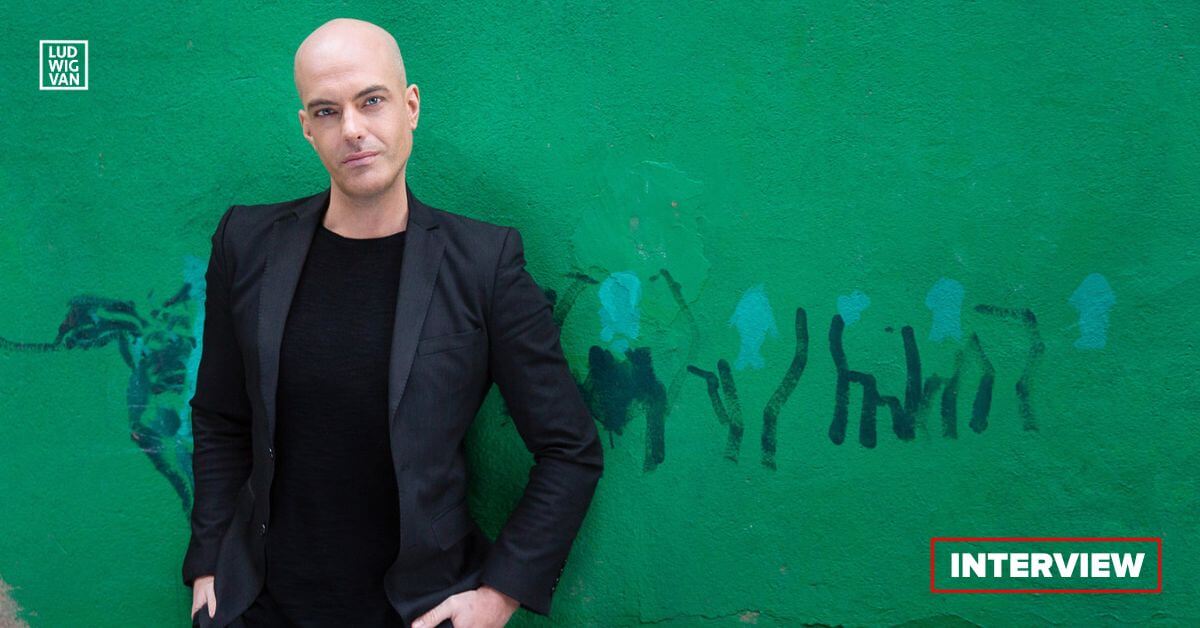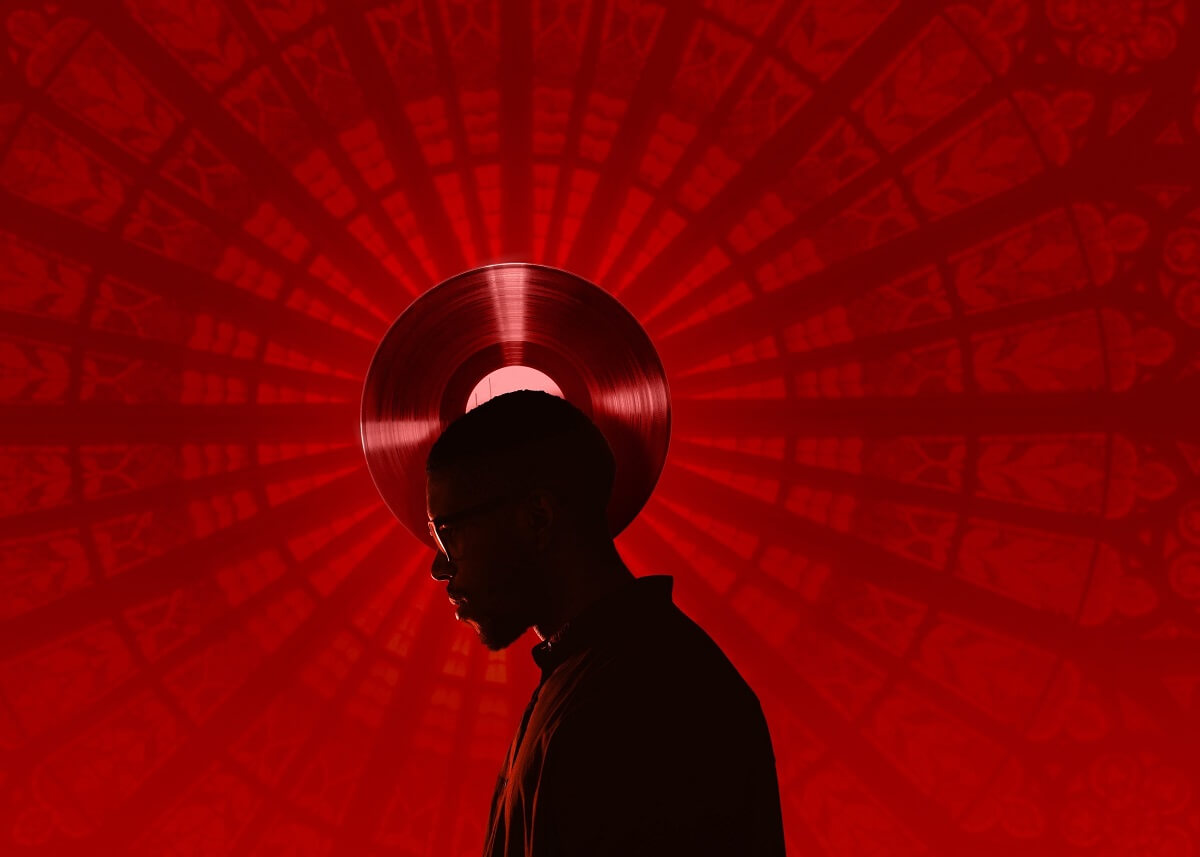
Every year, Soundstreams Electric Messiah has taken a traditional holiday classic and turned it into inspiration for a new age. Music director and sound designer Adam Scime assembles a cast of collaborators to create something new out of something venerable.
This year’s Electric Messiah takes place December 14 to 17. Along with Scime’s contribution as musical director and sound designer, the production features: stage direction by Chelsea Dab Hilke; Midori Marsh, soprano; Rebecca Cuddy mezzo-soprano; Elizabeth Shepherd, vocals; Daniel Cabena, counter-tenor; and Korin Thomas-Smith, baritone. The instrumental ensemble includes: Amahl Arulanandam, electric cello; Wesley Shen, harpsichord; Luan Phung, electric/acoustic guitar; and Joel Visentin, electric organ.
We spoke to Adam about Electric Messiah and new music.
Adam Scime
Composer and double bassist Adam Scime is a native of Hamilton, Ontario, and he earned both a BMus and MMus from the University of Western Ontario. He went on to doctoral studies in composition at the University of Toronto. While earning his PhD, he won a contest sponsored by Esprit Orchestra.
He has written commissioned pieces for the Ensemble contemporain de Montréal, The Esprit Orchestra, Array Music, l’Orchestre de la Francophonie, the Toronto Symphony Orchestra, and New Music Concerts, among others. In 2015, he won the Canadian Music Centre Toronto Emerging Composer Award.
He is the Managing Director of Kaeja d’Dance, and Music Director of FAWN Chamber Creative, along with his work with Soundstreams.
The Q&A
As a composer, what kinds of projects draw your interest? Is there something in particular that you look for?
Projects that involve a large amount of collaboration with other artists are particularly important for me in all aspects of my work. In these collaborative spaces, I enjoy the vulnerability of releasing one’s creative impulses or ideas for others to hold for a while and reshape, who then pass to others to do the same — I love this dance of ideas revealing a dynamic artistic object no one involved could have possibly created on their own. It’s incredible what can happen in a mutually supportive atmosphere of trust. Not only are these processes artistically meaningful, but also become important spaces to engage in a significant degree of self-analysis, which makes me quite happy because, with the help of my collaborators, I can become better equipped for whatever is next.
How did you become involved with Electric Messiah? (I understand you’ve been the musical director since 2015.)
Around that time (2015) I was a participant in Soundstreams’ Emerging Composer Workshop. I suppose this was my introduction to Artistic Director Lawrence Cherney and Soundstreams where Lawrence got to know me as a musician and collaborator. I assume he thought I would make a good fit to become the Music Director of The Electric Messiah. Nearly ten years later it’s amazing to look back on what the show has produced and who has been involved. Every year the artists involved continue to astound us with their creativity and their openness.
I would be remiss not to mention the amazing Kyle Brenders who created the original vision for The Electric Messiah. Kyle created the concept and initial arrangements for the 2015 premiere version, during which I was only an audience member (I actually joined the project the following year). We wouldn’t have a show without him — thank you, Kyle!

Each year, Electric Messiah riffs off Handel’s Messiah. How do you keep coming up with fresh inspiration for new ways to explore that music?
Each year, I meet with the musicians early in the process to start a conversation about what different things we can try. My main goal as music director is to get out of the way as much as I can and to allow the incredible abilities of the musicians to sculpt the way forward. In The Electric Messiah, everyone is a music director, which I think everyone enjoys as a welcomed change from any regular Messiah “gig”.
I think music wants to be explored and not just heard. The music of The Messiah is often only heard and not explored for its relationship to cultural tradition. Whether we welcome it or not, Handel’s music is so close to our ears and our minds this time of year. Since we live with this familiarity, The Electric Messiah is an excellent opportunity to recontextualize our perspectives on the tradition surrounding Handel’s music.
Through listening to, and engaging with, the narratives of each musician involved, and infusing Handel’s Messiah with those narratives, we collectively arrive at a reciprocal relationship that supports a truly contemporary mode of expression and artistic experience. The Electric Messiah as a show belongs as much to the artists’ contributions as to the collective circumstances: they are both made and discovered at the same time. If The Electric Messiah has been successful over the years, it is because of the incredible contributions of the artists and musicians involved.
How do you choose the artists to collaborate with each year?
There are so many amazing musicians out there to choose from. If we need new collaborators to come onto the project, we create a wish list of folks we think would make new and interesting contributions, and we go from there to see who’s available. One thing that is both exciting and somewhat heartbreaking about the project is that we try to invite new artists to the project every two or three years so that we continue to receive varied perspectives.
While this means a continuous stream of new ideas, it also means saying goodbye from time to time, and that can be hard. There have been so many amazing voices that have contributed over the years — folks like Jeremy Dutcher, SlowPitchSound, Lybido, Alex Samaras, Gabriel Dharmoo, Robin Dann, The Element Choir, Christine Duncan, Elizabeth Shepherd, the list goes on and on. Watching and listening to these artists come and go over the years, offering their brilliance to the project along the way, has been one of the most rewarding experiences in my career. Since 2015, each artist who has been a part of The Electric Messiah has contributed to the current definition of the show.
What kind of audience response do you get from Electric Messiah? Is it largely people who are familiar with the source material — or is it more mixed?
I think the Electric Messiah offers many wonderful things to an audience and, gratefully, it’s quite mixed. Each year we try to find new and meaningful ways to approach the material — something everyone involved believes to be a crucial progressive pursuit. Of course, some will be deeply familiar with all the music from Handel’s Messiah, and some have managed to avoid it to an extent — but — it would be hard to find someone who hasn’t heard the Hallelujah Chorus some dozens if not hundreds of times. And so, most of us have at least some relationship with this music. Filtering The Messiah through varied lenses can allow an audience to at once enjoy, question, critique, and, most importantly, contribute to how we explore alternative perspectives when dealing with cultural traditions.
The project offers a moment to experience some incredible music-making, but it also offers a conversation, and audience members can choose to become part of that conversation as listeners — where tradition and innovation speak to one another and hopefully arrive at a more nuanced appreciation of all our contemporary narratives as human beings.
Is this what you see as the future of Western classical music — to be flexible enough to introduce and drawn from all sorts of other musical elements?
I’m really not sure, I only know what I can hope for: that we shift our conception of excellence. I hope that the future of Western classical music is a place where cultural institutions don’t need to rely so much on what has been “tested” over time. I suppose this comes down to how we approach arts education. I think if we don’t change the way we educate in the arts, we’re only reproducing that by which particular groups maintained power in historical contexts. Insisting that we hold onto a particularly narrow view of culture in Western music (works “tested over time”) based on “expertise” hides the social quality of what art can really do. It also presents the illusion that we’ve somehow already agreed upon a hierarchy of artistic practice that must always be obeyed and never questioned. If you’re not contemplating all types of expression, especially contemporary expression, you’re not really being equitable. Don’t get me wrong, I adore much of the music from the Western classical world, and I think there is deep value there, but I hope the future of this world does not continue to be held prisoner by tradition. I’d like to think that, at the very least, we offer a conversation about this possible future in The Electric Messiah.
- Find tickets and more information about the performances [HERE].
Are you looking to promote an event? Have a news tip? Need to know the best events happening this weekend? Send us a note.
#LUDWIGVAN
Get the daily arts news straight to your inbox.
Sign up for the Ludwig Van Toronto e-Blast! — local classical music and opera news straight to your inbox HERE.
- PREVIEW | SUMMER OPERA LYRIC THEATRE Presents Handel’s Xerxes, Mozart’s Idomeneo & Puccini’a La Boheme July 26 To August 4 - July 26, 2024
- PREVIEW | YENSA Festival V.2 Offers Black Flames Performances & Other Ways To Celebrate Black Women In Dance - July 25, 2024
- PREVIEW | Canadian Talent Conspicuous In The Met: Live In HD 2024-25 Season - July 25, 2024



